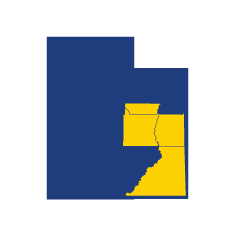
It’s tax season, and it has many people feeling a little stressed. If you’re like so many others living in rural Utah who are starting late on their taxes this year, you might be wondering if there is any way to make the process easier or faster. The good news is that with proper planning and the right resources, filing your taxes can still be quick and painless — even if it did take you a while to get started! In this blog post, we will outline four helpful tips for getting your taxes done when starting late so that you can maximize your deductions and get through this stressful time of year as smoothly as possible. Read on for everything you need to know!
Research About Tax Credits You Might Qualify For – Research any tax credits you may qualify for, such as the Earned Income Tax Credit (EITC) or Child and Dependent Care Credit (CDCC). These can help lower the amount of taxes that you owe.
You may qualify for certain tax credits that can help reduce the amount of taxes you owe or increase your tax refund amount. The Earned Income Tax Credit (EITC) and Child and Dependent Care Credit (CDCC) are both worth investigating. Doing some research into the specific qualifications of these tax credits could save you money when filing your taxes late. Don’t forget to take advantage of any resources in your community (like the VITA program offered through SEUALG) that could provide additional information or even assistance – it could add up to big savings!
Use Free or Low-Cost Online Resources – There are many free or low-cost online resources that can provide guidance on how to file taxes, such as VITA through SEUALG, the Internal Revenue Service’s website, TurboTax, and H&R Block.
If you’re feeling discouraged and need help getting your taxes done when starting late, there are plenty of low-cost or even free online resources available! The Volunteer Income Tax Assistance (VITA) through SEUALG offers helpful advice to lower-income individuals on how to file their taxes, while the Internal Revenue Service (IRS) and companies such as TurboTax and H&R Block offer additional online tax guidance. Another option is to use the myfreetaxes.com website partnered with United Way. You can also benefit from using a variety of online tools and smartphone apps that provide articles, tutorials, and webinars specifically designed for smooth filing of your returns. No matter where you are in the tax preparation process, accessing these resources can give you the confidence to complete your filing efficiently and with ease.
File an Extension if Necessary – If you need more time to get your taxes done, you can always file an extension with the IRS using Form 4868 for individual filers or Form 7004 for business owners. This will give you an extra six months to complete your return without incurring a penalty.
Starting your taxes late can be a stressful task, but fortunately, help is available. When it comes to taxes, the Internal Revenue Service (IRS) provides taxpayers with an extra six months of time to get their returns done without incurring a penalty. Both individual filers and business owners can take advantage of this courtesy by filing Form 4868 and Form 7004 respectively. This extension can provide a much-needed breathing room for those with lower incomes and who need more time to complete the task. Remember that filing for an extension does not free you from the burden of paying any due tax. However, it does at least give you some extra time so that you can carefully plan for the timely payment of any balances owed.
It’s important to remember if you’re starting your taxes late, that you’re not alone. The more understanding and knowledge you have about filing taxes, the better prepared you will be for filing your returns on time. By utilizing resources such as researching about tax credits you might qualify for, using free or low-cost online resources, and filing an extension if necessary, you can get your taxes done on time.


